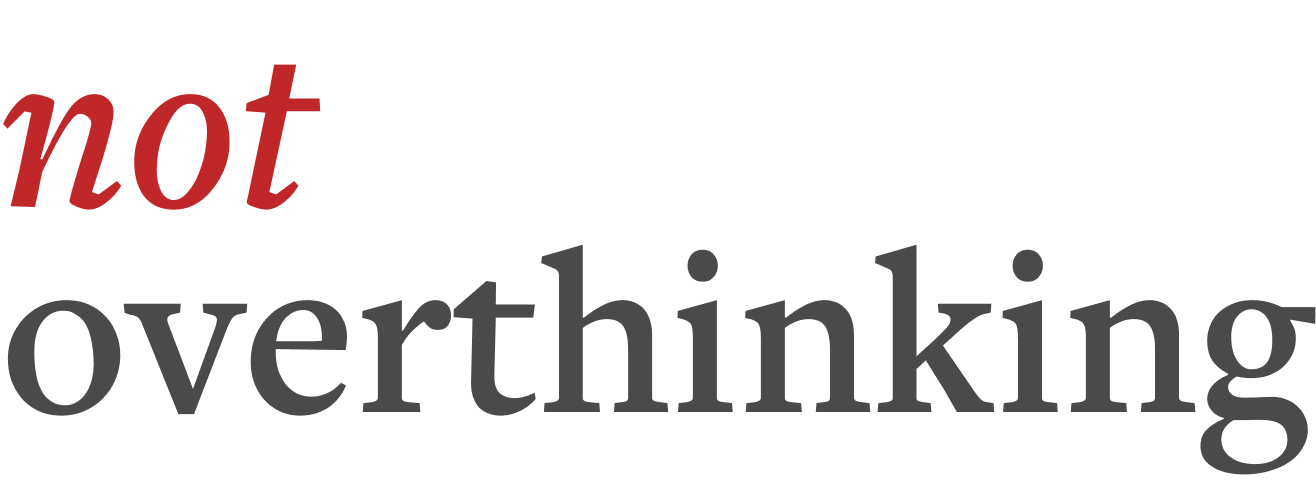Dissatisfaction and Aspiration

Here are some of the highlights from our discussion:
The standards we set ourselves aren’t calibrated to what we can actually get done. Thinking about it won’t change the amount of work you’ve already done but you can choose to feel satisfied with what you’ve done rather than dissatisfied. If we measure ourselves by the true yardstick of progress rather than work theatre, we can start to address that underlying feeling of dissatisfaction.
Grasping new values is difficult because our hands are already full with our own set of values about what is important to us. Adopting new values is not like buying a new piece of art to put on your wall – it requires a full mindset shift.
Decisions can be broadly split into three categories – small, medium and large. Small decisions are ones which are arbitrary like trying to decide what cereal to pick. We like to think we make decisions rationally but for small decisions we are not really using reasoning. Medium decisions are those where we can use our reasoning such as should I buy that car or that car. We can make a fairly rational decision about which to buy based on our criteria. Large decisions are those such as having children or moving to a new country – in these big decisions, however much we agonise over it we cannot make them rationally.
If you make a big decision in a non-rational way, it is not irrational it is a-rational – you cannot assess the rationality of it. In order to be irrational about something there needs to be a rational way of going about it. With larger decisions, this generally isn’t the case.
There is a difference between self-cultivation and self-transformation. Cultivation relates to areas of improvement where we already have some second order underlying value of wanting to be something. Whereas transformation would be an entire change in our values and perspective on something.
When we are thinking about big decisions, it’s more tractable for us to understand the downsides as opposed to the upsides which often clouds our judgement. It’s much easier to understand what you’ll be giving up when making a big decision than what you might be gaining but this can serve to cloud our judgement and affect our reasoning.
“Even when the ‘no’ option lacks external practical consequences it typically has internal ones. The rejected option enters in an essential way into the person’s description of his/her life. The shadow presence maintained by the rejected option may constitute a yardstick by which this person values the worth, success or meaning of their life…our subsequent experience of value might be coloured by the fact that the other option was available, but we rejected it”.
There are two ways to make big decisions – opting and drifting and in many instances, one’s character and values drift – we often deceive ourselves into drifting into an opting situation. For instance, important life decisions are often incremental in nature – a progression of small decisions that progressively commit the person to one particular course of action. A stepwise increase in commitment can often end up locking someone into a career or marriage without them ever having made a definite decision about it.
Links
Your Standards Are Too High by Neel Nanda
Aspiration: The Agency of Becoming by Agnes Callard
Become a Not Overthinker
We've got a fun little members-only community where we have a private Slack channel, and host weekly (ish) Zoom hangouts. Click here if you fancy joining.
Leave us a Review
If you enjoy listening to the podcast, we'd love for you to leave us a review on iTunes / Apple Podcasts. Here's a link that works even if you're not on an iPhone :)
Send us an Audio Message
We really want to include more listener comments and questions in our episodes. If you've got any thoughts on this episode, or if you've got a conundrum or question you'd like us to discuss, send an audio file / voice note to [email protected].
- For any non-audio comments, please comment on our YouTube channel.
- Alternatively, feel free to drop us a tweet or DM on Twitter - https://twitter.com/noverthinking.



